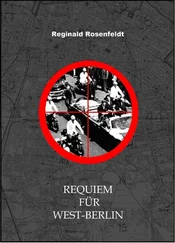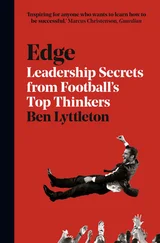Isaiah Berlin - Russian Thinkers
Здесь есть возможность читать онлайн «Isaiah Berlin - Russian Thinkers» весь текст электронной книги совершенно бесплатно (целиком полную версию без сокращений). В некоторых случаях можно слушать аудио, скачать через торрент в формате fb2 и присутствует краткое содержание. Год выпуска: 0101, Жанр: Старинная литература, на русском языке. Описание произведения, (предисловие) а так же отзывы посетителей доступны на портале библиотеки ЛибКат.
- Название:Russian Thinkers
- Автор:
- Жанр:
- Год:0101
- ISBN:нет данных
- Рейтинг книги:3 / 5. Голосов: 1
-
Избранное:Добавить в избранное
- Отзывы:
-
Ваша оценка:
- 60
- 1
- 2
- 3
- 4
- 5
Russian Thinkers: краткое содержание, описание и аннотация
Предлагаем к чтению аннотацию, описание, краткое содержание или предисловие (зависит от того, что написал сам автор книги «Russian Thinkers»). Если вы не нашли необходимую информацию о книге — напишите в комментариях, мы постараемся отыскать её.
Russian Thinkers — читать онлайн бесплатно полную книгу (весь текст) целиком
Ниже представлен текст книги, разбитый по страницам. Система сохранения места последней прочитанной страницы, позволяет с удобством читать онлайн бесплатно книгу «Russian Thinkers», без необходимости каждый раз заново искать на чём Вы остановились. Поставьте закладку, и сможете в любой момент перейти на страницу, на которой закончили чтение.
Интервал:
Закладка:
and then to stop. Turgenev, on the other hand, is judged to be both
an excellent writer and to stand in a real, morally adequate, relationship to his subjects; but he fails on the second count : the subjects are too circumscribed and trivial -and for this no degree of integrity or
skill can compensate. Content determines form, never form content;
and if the content is too small or trivial, nothing will save the work of
the artist. To hold the opposite of this-to believe in the primacy of
form-is to sacrifice truth; to end by producing works that are con-
248
TOLSTOY AND E N L I G HTENMENT
trived. There is no harsher word in Tolstoy's entire critical vocabulary
than 'made-up', indicating that the writer did not truly experience or
imagine, but merely 'coinposed'-'made up'-that which he is purporting to describe.
So, too, Tolstoy maintained that Maupassant, whose gifts he
admired greatly, betrayed his genius precisely owing to false and
vulgar theories of this kind; yet he remained, none the less, a good
writer to the degree to which, like Balaam, although he might have
meant to curse virtue, he could not help discerning what was good;
and this perception attracted his love to it, and forced him against his
own will towards the truth. Talent is vision, vision reveals the truth,
truth is eternal and objective. To see the truth about nature or about
conduct, to see it directly and vividly as only a man of genius (or a
simple human being or a child) can see it, and then to deny or tamper
with the vision in cold blood, no matter for the sake of what, is
monstrous, unnatural; a symptom of a deeply diseased character.
·
Truth is discoverable: to follow it is to be good, inwardly sound,
harmonious. Yet it is clear that our society is not harmonious or
composed of internally harmonious individuals. The interests of the
educated minority-what Tolstoy calls the professors, the barons, and
the bankers-are opposed to those of the majority-the peasants, the
poor; each side is indifferent to, or mocks, the values of the other.
Even those who, like Olenin, Pierre, Nekhlyudov, Levin, realise the
spuriousness of the values of the professors, barons, ·and bankers, and
the moral decay in which their false education has involved them, even
those who are truly contrite cannot, despite Slavophil pretensions, go
native and 'merge' with the mass of the common people. Are they too
corrupt ever to recover their innocence? Is their case hopeless? Or
can it be that civilised men have acquired (or discovered) certain true
values of their own, values which barbarians and children may know
nothing of, but which they, the civilised, cannot lose or forget, even if,
by some impossible means, they could transform themselves into
peasants or the free and happy Cossacks of the Don and the Terek?
This is one of the central and most tormenting problems in Tolstoy's
life, to which he goes back again and again, and to which he returns
conflicting answers.
Tolstoy knows that he himself clearly belongs to the minority of
barons, bankers, professors. He knows the symptoms of his condition
only too well. He cannot, for example, deny his passionate love for the
music of Mozart or Chopin or the poetry of Tyutchev or Pushkin,
,,
249
RU SSIAN TH INKERS
the ripest fruits of civilisation. He needs, he cannot do without, the
printed word and all the elaborate· paraphernalia of the culture in
which such lives are lived and such works of art are created. But what
is the use of Pushkin to village boys, when his words are not intelligible
to them? What real benefits has the invention of printing brought the
peasants? We are told, Tolstoy observes, that books educate societies
('that is, make them more corrupt'), that it was the written word that
has promoted the emancipation of the serfs in Russia. Tolstoy denies
this: the government would have done the same without books or
pamphlets. Pushkin's Boris Godunov pleases only him, Tolstoy: but
to the peasants it means nothing. The triumphs of civilisation? The
telegraph tells him about his sister's health, or about the prospects of
King Otto I of Greece; but what benefits do the masses gain from it?
Yet it is they who pay and have always paid for it all; they know this
well. When peasants kill doctors in the 'cholera riots' because they
regard them as poisoners, what they do is no doubt wrong, but these
murders are no accident: the instinct which tells the peasants who
their oppressors are is sound, and the doctors belong to that class.
When Wanda Landowska played to the villagers of Yasnaya Polyana,
the great majority of them remained unresponsive. Yet can it be
doubted that it is the simple people who lead the least broken lives,
immeasurably superior to the warped and tormented lives of the rich
and educated?
The common people, Tolstoy asserts in his early educational tracts,
are self-subsistent not only materially but spiritually-folksong, the
Iliad, the Bible, spring from the people itself, and are therefore
intelligible to all men everywhere, as the marvellous poem Silmtium
by Tyutchev, or Don Giovanni, or the Ninth Symphony is not. If
there is an ideal of man, it lies not in the future, but in the past.
Once upon a time there was the Garden of Eden and in it dwelt the
uncorrupted human soul as the Bible and Rousseau conceived it, and
then came the Fall, corruption, suffering, falsification. It is mere
blindness (Tolstoy says over and over again) to believe, as liberals or
socialists-the progressives-believe, that the golden age is still before
us, that history is the story of improvement, that material advance in
natural science or material skills coincides with real moral advance.
The truth is the reverse of this.
The child is closer to the ideal harmony than the grown man, and
the simple peasant than the tom, 'alienated', morally and spiritually
unanchored and self�estructive parasites who form the civilised elite.
250
TOLSTOY AND E N L I G HTENM ENT
From this doctrine springs Tolstoy's notable anti-individualism: and
in particular his diagnosis of the individual's will as the source of
misdirection and perversion of 'natural' human tendencies, and hence
the conviction (derived largely from Schopenhauer's doctrine of the
will as the source of frustration) that to plan, organise, rely on science,
try to create rational patterns of life in accordance with rational
theories, is to swim against the stream of nature, to dose one's eyes
to the saving truth within us, to torture facts to fit artificial schemata,
and torture human beings to fit social and economic systems against
which their natures cry out. From the same source, too, comes the
obverse of this: Tolstoy's faith in an intuitively grasped direction of
things as not merely inevitable, but objectively-providentially-good;
and therefore belief in the need to submit to it: his quietism.
This is one aspect of his teaching-the most famous, the most
central idea of the Tolstoyan movement-and it runs through all his
works, imaginative, critical, didactic, from The Cossadts and Family
Happiness to his last religious tracts. This is the doctrine which the
liberals and Marxists condemned. It is in this mood that Tolstoy
maintains that to imagine that heroic personalities determine events
is a piece of colossal megalomania and self-deception; his narrative is
Читать дальшеИнтервал:
Закладка:
Похожие книги на «Russian Thinkers»
Представляем Вашему вниманию похожие книги на «Russian Thinkers» списком для выбора. Мы отобрали схожую по названию и смыслу литературу в надежде предоставить читателям больше вариантов отыскать новые, интересные, ещё непрочитанные произведения.
Обсуждение, отзывы о книге «Russian Thinkers» и просто собственные мнения читателей. Оставьте ваши комментарии, напишите, что Вы думаете о произведении, его смысле или главных героях. Укажите что конкретно понравилось, а что нет, и почему Вы так считаете.










